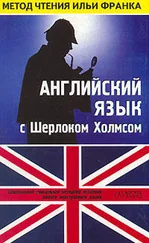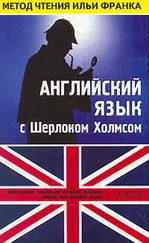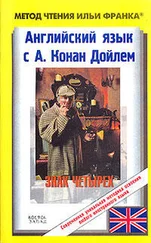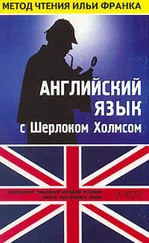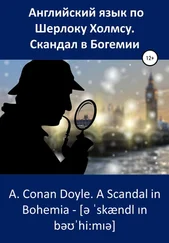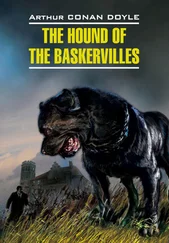crime [kraIm], exhaust [Ig'zO:st], atmosphere ['&tm@sfI@]
"The devil's agents may be of flesh and blood, may they not? There are two questions waiting for us at the outset. The one is whether any crime has been committed at all; the second is, what is the crime and how was it committed? Of course, if Dr. Mortimer's surmise should be correct, and we are dealing with forces outside the ordinary laws of Nature, there is an end of our investigation. But we are bound to exhaust all other hypotheses before falling back upon this one. I think we'll shut that window again, if you don't mind. It is a singular thing, but I find that a concentrated atmosphere helps a concentration of thought. I have not pushed it to the length of getting into a box to think, but that is the logical outcome of my convictions. Have you turned the case over in your mind?"
"Yes, I have thought a good deal of it (да, я очень много думал над ним) in the course of the day (в течение дня) ."
"What do you make of it (/и/ что вы из него поняли; to make of — понимать, постигать) ?"
"It is very bewildering (оно очень запутано) ."
"It has certainly a character of its own (/и/, определенно, имеет свой собственный характер = и довольно своеобразно) . There are points of distinction about it (есть в нем отличительные особенности; distinction — различение; отличие) . That change in the footprints, for example (те изменившиеся следы, к примеру) . What do you make of that (что вы об этом думаете) ?"
"Mortimer said that the man had walked on tiptoe (Мортимер сказал, что человек = сэр Чарльз шел на цыпочках) down that portion of the alley («вниз» по той части аллеи) ."
"He only repeated (он только повторил /то/) what some fool had said at the inquest (что сказал какой-то болван на следствии) . Why should a man walk on tiptoe down the alley (с какой стати человеку прогуливаться по аллее на цыпочках) ?"
"What then (что /же/ тогда) ?"
"He was running, Watson (он бежал, Ватсон) — running desperately, running for his life (бежал отчаянно, спасая свою жизнь: «бежал ради своей жизни») , running until he burst his heart (бежал, пока не разорвалось его сердце) and fell dead upon his face (и упал замертво лицом вниз: «на свое лицо») ."
character ['k&rIkt@], example [Ig'zA:mpl], dead [ded]
"Yes, I have thought a good deal of it in the course of the day."
"What do you make of it?"
"It is very bewildering."
"It has certainly a character of its own. There are points of distinction about it. That change in the footprints, for example. What do you make of that?"
"Mortimer said that the man had walked on tiptoe down that portion of the alley."
"He only repeated what some fool had said at the inquest. Why should a man walk on tiptoe down the alley?"
"What then?"
"He was running, Watson — running desperately, running for his life, running until he burst his heart and fell dead upon his face."
"Running from what (бежал от чего) ?"
"There lies our problem (здесь лежит наша задача = вот это и есть наш вопрос) . There are indications that the man was crazed with fear (есть признаки, что этот человек обезумел от страха) before ever he began to run (прежде чем начал убегать) ."
"How can you say that (как вы можете так говорить = откуда вам это известно) ?"
"I am presuming that the cause of his fears (я считаю, что причина его страхов) came to him across the moor (приближалась к нему со /стороны/ болот) . If that were so, and it seems most probable (если бы это было так, а это кажется наиболее вероятным) , only a man who had lost his wits (то только человек, потерявший рассудок; to lose) would have run from the house instead of towards it (убегал бы от дома, вместо того, чтобы /бежать/ к нему) . If the gipsy's evidence may be taken as true (если показания цыгана /можно/ принять за правду) , he ran with cries for help in the direction (он бежал, крича о помощи в /том/ направлении; to run) where help was least likely to be (где помощь была наименее вероятна) . Then, again, whom was he waiting for that night (и опять же, кого он ожидал в тот вечер) , and why was he waiting for him in the Yew Alley (и почему он ждал его в тисовой аллее) rather than in his own house (а не в собственном доме; rather than — не столько… сколько) ?"
"You think that he was waiting for someone (вы думаете, он кого-то ждал) ?"
problem ['prObl@m], instead [In'sted], towards [t@'wO:dz]
"Running from what?"
"There lies our problem. There are indications that the man was crazed with fear before ever he began to run."
"How can you say that?"
"I am presuming that the cause of his fears came to him across the moor. If that were so, and it seems most probable, only a man who had lost his wits would have run from the house instead of towards it. If the gipsy's evidence may be taken as true, he ran with cries for help in the direction where help was least likely to be. Then, again, whom was he waiting for that night, and why was he waiting for him in the Yew Alley rather than in his own house?"
"You think that he was waiting for someone?"
"The man was elderly and infirm (человеком /он/ был пожилым и слабым /здоровьем/) . We can understand his taking an evening stroll (мы можем = можно понять /его желание/ совершить вечернюю прогулку) , but the ground was damp and the night inclement (но земля была сырой, а ночь — холодной; inclement — суровый /о климате/) . Is it natural that he should stand for five or ten minutes (/и/ естественно ли то, что он остановился на пять или десять минут) , as Dr. Mortimer, with more practical sense than I should have given him credit for (как доктор Мортимер, с более практичным рассудком, чем я в нем бы предположил; to give credit for — отдавать должное) , deduced from the cigar ash (установил по сигарному пеплу) ?"
"But he went out every evening (но он выходил /на прогулку/ каждый вечер) ."
"I think it unlikely (я думаю, вряд ли) that he waited at the moor-gate every evening (он ждал у калитки, /ведущей на/ болота, каждый вечер) . On the contrary, the evidence is (наоборот, /есть/ свидетельства) that he avoided the moor (что он избегал болот) . That night he waited there (/а/ в тот вечер он ждал там) . It was the night before he made his departure for London (это был вечер накануне его отъезда в Лондон; to make — делать; в сочетании с существительным означает действие, соответствующее значению существительного) . The thing takes shape, Watson (дело обретает форму, Ватсон) . It becomes coherent (оно становится /более/ связным) . Might I ask you to hand me my violin (мог бы я попросить вас передать мне мою скрипку) , and we will postpone all further thought upon this business (и мы отложим все дальнейшие размышления по этому делу) until we have had the advantage (до тех пор, пока не выудим чего-нибудь полезного; advantage — преимущество; выгода, польза) of meeting Dr. Mortimer and Sir Henry Baskerville in the morning (из утренней встречи с доктором Мортимером и сэром Генри Баскервилем) ."
Читать дальше


